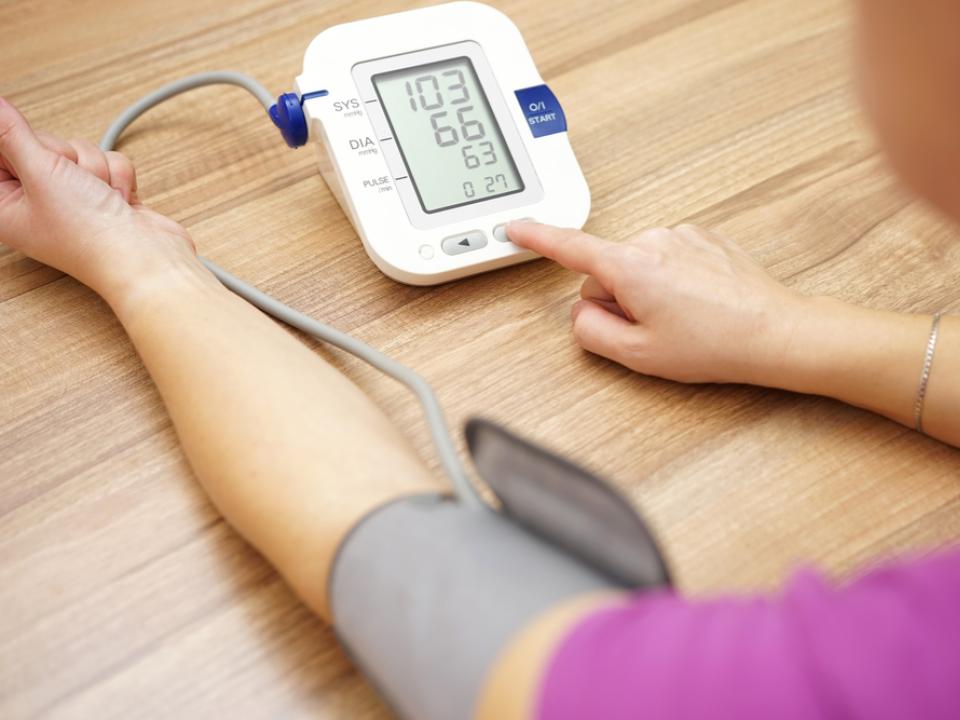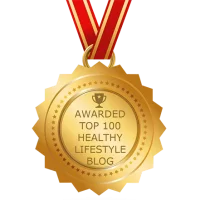Are you tired of relying solely on medications to manage your high blood pressure? Do you want to take a more holistic approach and explore natural techniques that can make a positive impact on your health? If so, you’ve come to the right place!
In this comprehensive guide, we’ll delve into the world of holistic strategies and lifestyle changes that can help you effectively manage high blood pressure beyond traditional medications. We’ll go beyond the basics and provide you with the knowledge and tools to take control of your health.
From adopting a healthy lifestyle and incorporating regular physical activity to exploring the benefits of mindfulness meditation and dietary changes, we’ll cover it all. With the right information and a well-rounded approach, you can achieve better blood pressure management and improve your overall well-being.
So, join us on this journey as we explore the various holistic techniques that can provide a natural and lasting solution to managing high blood pressure. It’s time to take charge of your health and discover the power of a holistic approach to high blood pressure! Book an Appointment
Introduction to Holistic Cardiology Approach
When it comes to managing high blood pressure, medications alone may not always provide a complete solution. That’s where a holistic approach comes into play. This comprehensive approach takes into account various lifestyle changes, strategies, and techniques that can contribute to better blood pressure management. By addressing not only the symptoms but also the underlying causes, a holistic approach offers a well-rounded perspective on treating high blood pressure.
One of the key benefits of a holistic cardiology is that it focuses on overall well-being and aims to improve not just blood pressure readings but also an individual’s overall health. Rather than relying solely on medications, this approach encourages individuals to take an active role in their own health by adopting healthy lifestyle habits and incorporating various holistic techniques into their daily routine.
By making sustainable changes to diet, exercising regularly, managing stress, and incorporating mindfulness practices, individuals can support healthy blood pressure levels naturally. The holistic approach recognizes that blood pressure management is not just about numbers on a blood pressure monitor but also about overall physical, mental, and emotional well-being.
In the following sections, we will delve into specific lifestyle changes, holistic strategies, and techniques that can make a positive impact on blood pressure management. By adopting a comprehensive approach, you can empower yourself to take control of your health and work towards a healthier future.
Holistic Strategies and Techniques
When it comes to managing high blood pressure, incorporating holistic strategies and techniques into your lifestyle can have a positive impact. These approaches go beyond traditional medications and offer a well-rounded perspective on blood pressure management. Let’s explore some of the holistic strategies that you can consider:
Mindfulness Meditation
Mindfulness meditation is a practice that involves focusing on the present moment and embracing a non-judgmental awareness of your thoughts and feelings. Research suggests that practicing mindfulness meditation can help reduce blood pressure levels and promote overall well-being. By incorporating this technique into your daily routine, you can learn to manage stress more effectively, which in turn can lead to better blood pressure control.
Herbal Supplements
Certain herbal supplements have been studied for their potential benefits in managing blood pressure. For example, garlic extract has been found to have a positive impact on blood pressure levels. Incorporating a standardized garlic extract into your routine may help lower blood pressure to some extent. However, it’s important to consult with your healthcare provider before starting any herbal supplement to ensure it is safe and suitable for you.
Alternative Therapies
Various alternative therapies, such as acupuncture and chiropractic care, may offer additional avenues for blood pressure management. Acupuncture involves the insertion of fine needles at specific points on the body, which may help improve blood flow and promote relaxation. Chiropractic care focuses on aligning the spine and nervous system, which can have a positive impact on overall health and potentially contribute to blood pressure control.
It’s worth noting that while these holistic strategies and techniques show promise, they should not replace prescribed medications or medical advice. It’s essential to work closely with your healthcare provider to create a comprehensive treatment plan that combines both traditional and holistic approaches.
Remember, the key to successful blood pressure management lies in finding the right balance between medical interventions and lifestyle modifications. By incorporating mindfulness meditation, exploring herbal supplements, and considering alternative therapies, you can take a holistic approach towards better blood pressure control. Always consult with your healthcare provider before making any significant changes to your treatment regimen.
Sleep and Blood Pressure Connection
Quality sleep plays a vital role in maintaining healthy blood pressure levels. Lack of sleep, sleep apnea, and poor sleep quality have been associated with an increased risk of high blood pressure. Understanding the relationship between sleep and blood pressure can help individuals adopt healthier sleep habits and improve their overall blood pressure management. During sleep, the body undergoes essential restorative processes, including the regulation of blood pressure. Research has shown that inadequate sleep can lead to elevated blood pressure levels. This is because sleep deprivation disrupts the body’s natural circadian rhythm, leading to hormonal imbalances and increased sympathetic nervous system activity.
Tips for improving sleep habits:
- Stick to a consistent sleep schedule by going to bed and waking up at the same time each day.
- Create a peaceful and comfortable sleep environment by reducing noise and avoiding electronic devices before bedtime.
- Practice relaxation techniques such as deep breathing exercises, yoga, or mindfulness meditation to promote a calm state before sleep.
- Establish a pre-sleep routine that includes activities such as reading, taking a warm bath, or listening to soothing music.
- Limit exposure to caffeine and alcohol, especially close to bedtime, as they can interfere with quality sleep.
- Ensure your bedroom is dark, cool, and quiet to create an optimal sleeping environment.
- Consider using white noise machines or earplugs to block out disruptive sounds and promote better sleep quality.
- Invest in a comfortable mattress and pillows that provide proper support for a restful night’s sleep.
By prioritizing quality sleep, individuals can positively influence their blood pressure levels. It is essential to consult with a healthcare provider for personalized advice and treatment recommendations, especially for those with underlying health conditions or sleep disorders.
Remember, a holistic approach to blood pressure management considers the interconnectedness of various lifestyle factors, including sleep quality. Incorporating healthy sleep habits into your routine can complement other lifestyle changes and contribute to improved blood pressure control.
The Role of Diet in Blood Pressure Control
Maintaining a balanced and nutrient-rich diet is crucial for managing high blood pressure effectively. Your dietary choices play a significant role in regulating blood pressure levels. By making mindful food decisions, you can support a healthy cardiovascular system and lower the risk of complications associated with high blood pressure. Here, we will explore the impact of diet on blood pressure and highlight specific foods and nutrients that promote optimal blood pressure levels.
The Impact of a Balanced Diet
A balanced diet is essential for overall health, but it especially holds importance for individuals managing high blood pressure. Consuming nutrient-rich foods helps maintain healthy blood vessels and prevents the development of arteriosclerosis, the hardening and narrowing of arteries. A study published in the British Medical Journal found that adherence to a healthy diet can significantly reduce blood pressure levels and decrease the risk of heart disease[^1^].
Key Nutrients for Blood Pressure Control
Certain nutrients have been found to have a positive impact on blood pressure levels. Including these in your diet can support overall cardiovascular health and aid in blood pressure management. Here are some key nutrients to focus on:
- Potassium: This mineral plays a vital role in regulating blood pressure by counteracting the effects of sodium. Foods rich in potassium include bananas, sweet potatoes, spinach, and avocados.
- Calcium and Magnesium: These minerals are essential for blood vessel health and muscle function. Incorporating calcium-rich foods like low-fat dairy products and leafy greens, along with magnesium-rich foods like nuts, seeds, and whole grains, can be beneficial for blood pressure control.
- Fiber: A diet high in fiber reduces cholesterol levels and promotes healthy blood pressure. Opt for whole grains, fruits, vegetables, legumes, and nuts to increase your fiber intake.
- Omega-3 Fatty Acids: Found in fatty fish such as salmon, mackerel, and sardines, omega-3 fatty acids have been shown to lower blood pressure and reduce the risk of cardiovascular diseases.
Foods to Include in Your Diet
Incorporating specific foods into your daily meals can have a positive impact on blood pressure control. Consider adding the following to your diet:
- Fresh fruits and vegetables: Aim for a variety of colourful options, as they are rich in essential nutrients and antioxidants.
- Lean proteins: Opt for lean meats, poultry, fish, and plant-based protein sources like beans and lentils.
- Whole grains: Choose whole wheat, brown rice, quinoa, and oatmeal over refined grains.
- Low-fat dairy products: Include skim milk, low-fat yogurt, and reduced-fat cheeses in moderation.
- Nuts and seeds: Incorporate almonds, walnuts, flaxseeds, and chia seeds for their heart-healthy benefits.
- Healthy fats: Avocado, olive oil, and nuts are excellent sources of healthy fats.
Remember to limit your sodium intake as excess salt can raise blood pressure levels. Avoid processed foods, canned soups, and snacks that are typically high in sodium content.
Benefits of Regular Exercise for Blood Pressure Management:
Physical activity plays a vital role in managing high blood pressure and improving overall cardiovascular health. Regular exercise can help lower blood pressure, strengthen the heart, and improve blood flow, reducing the risk of heart disease and other complications. Here are some key benefits of incorporating exercise into your daily routine:
- Lowered Blood Pressure: Have you heard of the many effective holistic treatments for high blood pressure? Over 4 in 10 Americans are thought to suffer from hypertension, which puts them at risk of heart disease. Engaging in regular exercise has been shown to lower both systolic and diastolic blood pressure readings. This can help individuals with hypertension achieve better control of their blood pressure levels.
- Improved Cardiovascular Health: Exercise strengthens the heart, making it more efficient at pumping blood. It also improves the elasticity of blood vessels, promoting better blood flow and reducing the workload on the heart.
- Weight Management: Regular physical activity can aid in weight loss or weight maintenance, which is crucial for managing high blood pressure. Excess weight puts additional strain on the heart and can contribute to elevated blood pressure.
- Reduced Stress: Exercise is a fantastic stress reliever. It helps release endorphins, which are natural mood boosters, and reduces the production of stress hormones such as cortisol. Lowering stress levels can indirectly benefit blood pressure control.
Recommendations for Incorporating Physical Activity into Daily Routines:
- Aerobic Exercise: Engage in moderate-intensity aerobic activities for at least 150 minutes per week, or vigorous-intensity aerobic activities for 75 minutes per week. Examples include brisk walking, jogging, cycling, swimming, or dancing.
- Strength Training: Include strength training activities at least twice a week. This can involve lifting weights, using resistance bands, or performing body weight exercises.
- Flexibility and Stretching: Incorporate stretching exercises to improve flexibility and prevent injuries. Yoga and Pilates are great options for enhancing flexibility and promoting relaxation.
- Start Slow and Gradually Increase Intensity: If you’re new to exercise or have been inactive for a while, start slowly and gradually increase the duration and intensity of your workouts. Consult with a healthcare professional before starting any new exercise program, especially if you have underlying health conditions.
Remember, it’s important to find physical activities that you enjoy and make them a regular part of your routine. Aim for consistency rather than intensity, and listen to your body’s cues. By incorporating regular exercise into your daily life, you can take significant steps towards managing your blood pressure and improving your overall health.
Note: Always consult with your healthcare provider before starting any new exercise program, especially if you have pre-existing medical conditions or concerns.
Potential Risks and Precautions
When considering holistic approaches to managing high blood pressure, it’s essential to be aware of potential risks and take necessary precautions. While these approaches can offer a natural and complementary way to support blood pressure management, it’s crucial to consult with a healthcare provider before making any significant changes. Here are some important points to consider:
Consult with Your Healthcare Provider
Before incorporating any new holistic strategies, it’s important to discuss your plans with your healthcare provider. They can provide guidance based on your specific medical history, current medication regimen, and overall health. Your healthcare provider will help determine whether a particular approach is suitable for you and can also address any potential interactions with your existing medications.
Follow Professional Advice
Although holistic approaches can be beneficial, it’s crucial to follow advice from qualified professionals. Seek guidance from trusted experts, such as registered dieticians, certified herbalists, or experienced practitioners in alternative therapies. They can provide personalized recommendations and ensure that you are adopting safe and effective practices.
Complementary and Alternative Approaches
When it comes to managing high blood pressure, some individuals seek out complementary and alternative approaches that go beyond traditional medications. These approaches focus on enhancing overall well-being and promoting natural healing. While they may not be suitable for everyone, they can offer valuable options for those looking to incorporate holistic techniques into their blood pressure management strategies. Here are some of the complementary and alternative approaches worth considering:
Acupuncture is a technique rooted in Traditional Chinese Medicine that involves the insertion of thin needles into specific points on the body. It is believed to help restore the balance of energy, known as qi, within the body. Research suggests that acupuncture may have a positive impact on blood pressure by promoting relaxation and reducing stress levels. However, it’s important to consult a licensed acupuncturist and discuss its suitability with your healthcare provider.
Chiropractic Care
Chiropractic care focuses on spinal alignment and musculoskeletal health. It aims to promote proper nervous system functioning, which may indirectly influence blood pressure levels. Spinal adjustments performed by chiropractors may help address any imbalances that could contribute to elevated blood pressure. As with any complementary approach, it’s crucial to consult a qualified chiropractor and keep your healthcare provider informed.
Mind-Body Techniques
Mind-body techniques encompass various practices that connect the mind and body, fostering a sense of relaxation and well-being. These techniques can include mindfulness meditation, yoga, tai chi, and qigong. Research suggests that incorporating mind-body techniques into daily routines can help reduce stress, lower blood pressure, and improve overall cardiovascular health. Engaging in these practices can also contribute to better mental and emotional well-being.
Herbal Supplements
Certain herbal supplements, such as garlic extract, hawthorn berries, and green tea, have been studied for their potential benefits in managing blood pressure. However, it’s important to approach herbal supplements with caution and under the guidance of a healthcare professional. Herbal supplements can interact with medications and have potential side effects, so it’s important to have a comprehensive understanding of their safety and efficacy profiles.
Remember, complementary and alternative approaches should never replace medically prescribed treatments or lifestyle modifications. They should be seen as additional support to enhance your overall blood pressure management efforts. Always discuss your interest in these approaches with your healthcare provider to ensure their suitability, proper guidance, and potential interactions with any existing medications. Your healthcare provider can provide personalized advice and monitor your progress as you explore these holistic avenues for managing high blood pressure.
By incorporating these complementary and alternative approaches into your holistic blood pressure management strategy, you can pursue a well-rounded approach that addresses not just the symptoms but also the underlying factors contributing to high blood pressure.
Be Mindful of Contraindications and Interactions
Certain holistic strategies may have contraindications or interactions with medications or underlying health conditions. For example, some herbal supplements may interact with blood pressure-lowering drugs or pose risks for individuals with specific medical conditions. Always research and consult with a healthcare provider to ensure that the holistic approaches you choose align with your medical needs.
Monitor and Track Your Progress
Regular monitoring of your blood pressure is essential when adopting holistic approaches. Keep track of your readings and record any noticeable changes or improvements. Share this information with your healthcare provider during check-ups to ensure that your treatment plan remains effective and appropriate.
Individual Variations and Responses
Remember that everyone responds differently to various holistic approaches. What works for one person may not work for another. It’s essential to listen to your body and pay attention to your individual responses. If you experience any adverse effects or changes in your health, consult with your healthcare provider immediately.
Holistic Approaches as Complementary
Holistic approaches should be viewed as complementary to traditional medical treatments rather than replacements. They can work alongside prescribed medications and lifestyle modifications to optimize your blood pressure management. It’s important to continue following your healthcare provider’s advice and maintain regular check-ups.
By understanding the potential risks and taking necessary precautions, you can safely incorporate holistic approaches into your high blood pressure management plan. Consultation with your healthcare provider is crucial to ensure that these strategies are aligned with your unique medical needs and to make informed decisions about your overall health and well-being.
Conclusion
In conclusion, taking a holistic approach to managing high blood pressure goes beyond relying solely on medications. By incorporating lifestyle changes, adopting holistic strategies, and prioritizing overall well-being, individuals can effectively manage their blood pressure and improve their overall health.
Throughout this comprehensive guide, we have discussed various aspects of holistic blood pressure management. We explored the importance of lifestyle changes, including diet modifications, regular exercise, stress reduction techniques, and quality sleep. These lifestyle adjustments can significantly contribute to maintaining healthy blood pressure levels.
Furthermore, we delved into specific holistic strategies and techniques that individuals can incorporate into their daily routines. Mindfulness meditation, herbal supplements, and alternative therapies have all shown potential as complementary approaches to blood pressure management.
We also highlighted the vital role that diet plays in controlling blood pressure. A balanced, nutrient-rich diet, abundant in whole grains, low-fat dairy, and foods rich in potassium, can significantly support heart health and blood vessel function.
Regular physical activity was identified as another essential component in managing blood pressure. Engaging in exercise not only promotes overall cardiovascular health but also contributes to stress reduction and weight management.
Moreover, we discussed the importance of managing stress and explored stress management techniques such as deep breathing exercises and relaxation techniques.
It’s worth noting that complementary and alternative approaches, such as acupuncture and chiropractic care, may also be considered by individuals seeking additional support in blood pressure management.
While adopting holistic approaches can be beneficial, it is vital to consult with a healthcare provider, especially for individuals with specific medical conditions or those already on medication. They can provide expert guidance and ensure that the chosen approach aligns with individual needs and overall treatment plans.
In conclusion, managing high blood pressure requires a comprehensive and holistic approach that encompasses various lifestyle factors and strategies. By prioritizing overall well-being and addressing the root causes of high blood pressure, individuals can take control of their health and effectively manage their blood pressure levels. Remember, small changes made over time can yield significant results in blood pressure control and overall cardiovascular health.
Holistic Primary Care Doctor Near me:
Dr. Cynthia Thaik is a prominent holistic cardiologist affiliated with the Holistic Healing Heart Center in Los Angeles. Dr. Thaik provides extensive guidance and assistance in crafting a comprehensive, integrative medicine to enhance your overall health, with a special focus on cardiovascular wellness. Booking an appointment can be conveniently done through our official website. It’s crucial to maintain regular monitoring, even if you opt for natural remedies to manage high blood pressure. Consistent blood pressure screenings are essential to track your progress. Additionally, it’s prudent to consult with your doctor before incorporating any herbs or supplements into your health regimen, and always consult your healthcare provider before making any changes to your prescribed medications.





